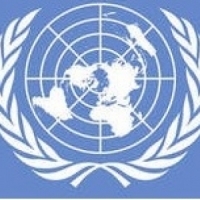
COMITÉ DE DERECHOS HUMANOS, TOONEN VS. AUSTRALIA
En 1991, el señor Toonen envió una queja al Comité de Derechos Humanos basada en las leyes tasmanas que criminalizaban el sexo consentido entre varones adultos en privado. La queja estaba fundada en los derechos recogidos en el PIDCP, en particular, el derecho a la vida privada (artículo 17), y el derecho a igual trato y protección de la ley (artículo 26).
Como resultado de su queja ante el Comité, el señor Toonen perdió su trabajo en el Consejo contra el Sida de Tasmania, ya que el gobierno de ese Estado australiano amenazó con retirar el financiamiento al Consejo, a menos que Toonen fuera despedido.
2.1 The author is an activist for the promotion of the rights of homosexuals in Tasmania, one of Australia's six constitutive states. He challenges two provisions of the Tasmanian Criminal Code, namely Sections 122(a) and (c) and 123, which criminalize various forms of sexual contacts between men, including all forms of sexual contacts between consenting adult homosexual men in private.
2.2 The author observes that the above sections of the Tasmanian Criminal Code empower Tasmanian police officers to investigate intimate aspects of his private life and to detain him, if they have reason to believe that he is involved in sexual activities which contravene the above sections. He adds that the Director of Public Prosecutions announced, in August 1988, that proceedings pursuant to Sections 122(a), (c) and 123 would be initiated if there was sufficient evidence of the commission of a crime.
2.3 Although in practice the Tasmanian police has not charged anyone either with unnatural sexual intercourse" or "intercourse against nature" (Section 122) nor with "indecent practice between male persons" (Section 123) for several years, the author argues that because of his long-term relationship with another man, his active lobbying of Tasmanian politicians and the reports about his activities in the local media, and because
of his activities as a gay rights activist and gay HIV/AIDS worker, his private life and his liberty are threatened by the continued existence of Sections 122(a), (c) and 123 of the Criminal Code.
El Comité de Derechos Humanos resolvió que las secciones 122 (a) y (c) y 123 código penal de Tasmania suponía una infracción a los artículos 17 y 26 del Pacto Internacional de Derechos Civiles y Políticos y, por ende, un incumplimiento de las obligaciones de Australia como estado parte del PIDCP. En respuesta a la determinación del Comité, Australia derogó los artículos del código penal de Tasmania que criminalizaban las relaciones sexuales consentidas entre homosexuales.